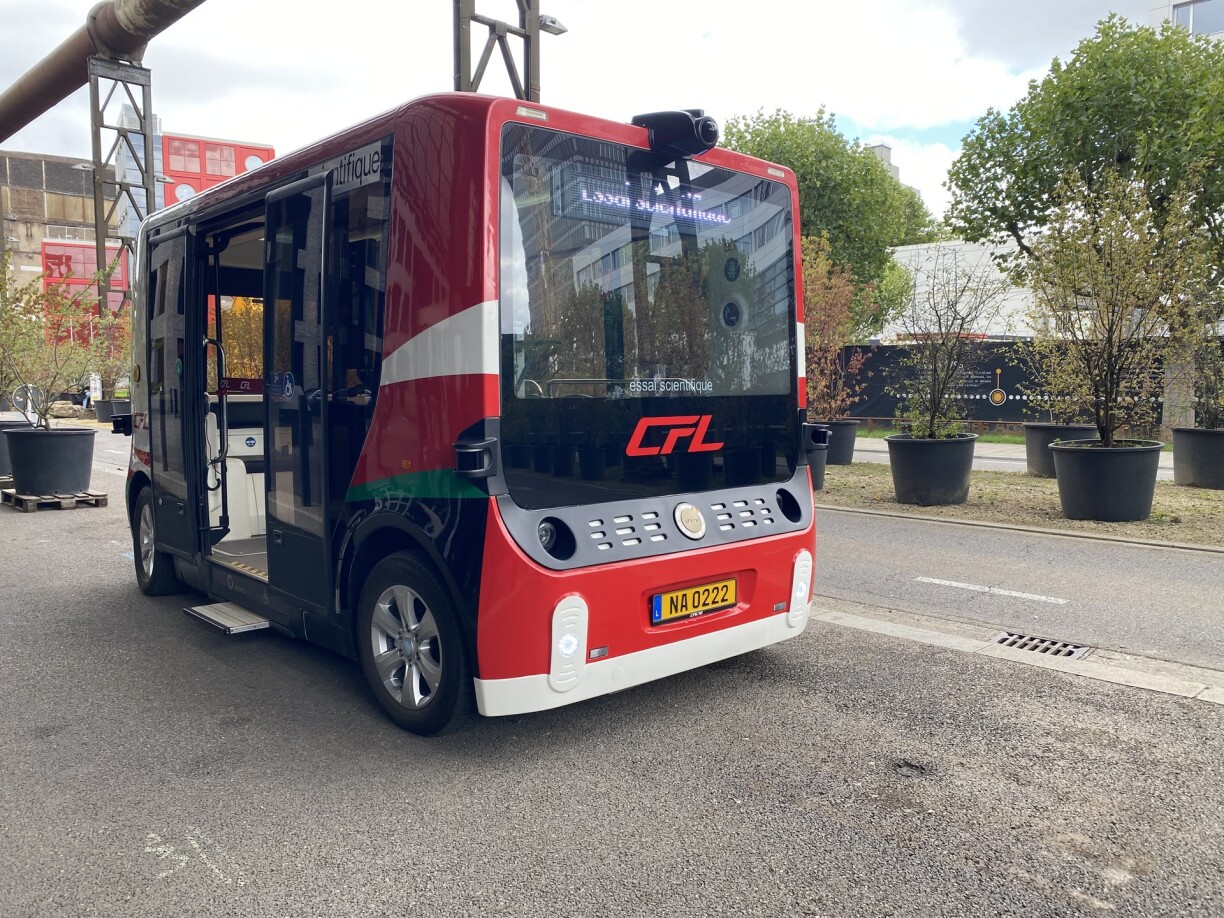
The government has set its sights on becoming a pioneer in the field of smart and innovative mobility, with electric and autonomous shuttles seen as part of the solution. On Monday, the first two were inaugurated in Belval.
For about a month, two free autonomous minibusses have been operating in Esch-Belval, run by CFL. They are intended to cover the so-called “last kilometre”, the stretch from the train station to university or the workplace.
These vehicles are meant to complement, rather than replace, existing mobility options.
Developed by the New Zealand-based company OHMIO, a global player specialising in autonomous vehicles, the shuttles each provide eight seats and are wheelchair-accessible. By law, a safety driver must still be present on board to take control in emergencies.
The vehicles operate Monday to Friday between 9am and 2pm on a four to five-kilometre route linking the train station with the university, and secondary school. They travel at a maximum speed of 25 km/h, guided by a virtual line and equipped with ultrasound sensors to detect obstacles. CFL currently offers the service once an hour as part of a cautious roll-out.
Mobility and Public Works Minister Yuriko Backes described the project as an important step towards smarter mobility. She stressed that Luxembourg is facing a shortage of drivers, but reassured that autonomous vehicles are not intended to replace bus staff altogether. Instead, she said, the aim is to provide a complementary offer and create new professions in the sector.
The route through Belval presents challenges, with narrow streets, trees and hedges. Sensors and lasers enable the vehicles to react, even triggering emergency braking if, for instance, a pigeon flies across their path.
CFL has called on pedestrians in the district to be cautious and avoid stepping in front of the shuttles at the last moment, as sudden automatic stops can be uncomfortable for passengers.
CFL director general Marc Wengler emphasised that the project remains experimental, but fits with the company’s strategy of expanding its role across the entire mobility chain. He said artificial intelligence, sensors, and digital connectivity could allow autonomous mobility to be integrated into Luxembourg’s public transport network in the future.
Testing of the shuttles has taken place over 18 months in all weather conditions to assess different scenarios. While further expansion is not yet planned, for now Belval will serve as Luxembourg’s living laboratory for the mobility of tomorrow.